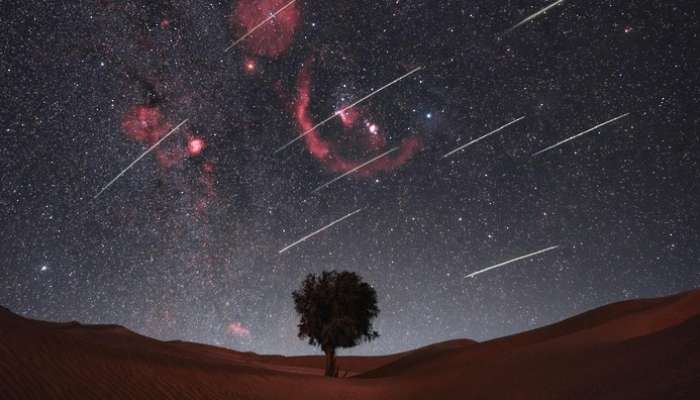
Muscat: The skies over the Sultanate of Oman are currently hosting the spectacular Perseid meteor shower, which will continue until August 24, according to a report from the Oman Astronomical Society.
The Perseid meteor shower is one of the most well-known summer meteor showers and is best observed at its peak, which occurs on Monday evening and extends into the early hours of Tuesday morning.
Ashwaq bint Nasser Al Siyabi, a member of the Executive Committee of the Oman Astronomical Society, explained, "Meteor showers occur when the Earth, in its orbit around the sun, passes near the orbit of a comet and encounters a trail of meteors left behind by that comet. Specifically, the Perseid meteor shower occurs when Earth passes through meteors left by Comet Swift-Tuttle. This results in dust particles entering Earth's atmosphere and burning up, creating bright streaks of light at speeds of about 72 kilometers per second at altitudes between 70 and 100 kilometers."
Al Siyabi added, "During its peak, observers in dark locations away from light pollution can expect to see between 60 and 100 meteors per hour. The Perseid meteor shower is predictable in its annual occurrence, typically lasting for several hours and sometimes extending over days or weeks. This year's shower began in mid-July and will continue until the end of August."
She also noted, "The Perseids are known for producing very bright meteors, or fireballs. No other meteor shower matches the intensity of the Perseids, which are caused by Comet Swift-Tuttle, a comet that orbits the sun every 130 years with a nucleus about 26 kilometers in diameter. Recent surveys indicate that the Perseids generate more fireballs than any other meteor shower."
Al Siyabi concluded by advising that "observing this phenomenon requires finding a dark location free from light pollution and obstacles like tall trees. Look northeast near the constellation Perseus, which is the apparent origin of these meteors, from after midnight on Monday until before dawn on Tuesday."
She also highlighted that this is a perfect opportunity for astronomy enthusiasts to capture stunning images of the Perseid meteors along with other celestial bodies visible during this period, such as the giant planets Jupiter and Saturn. Al Siyabi emphasized that the Perseid meteor shower is one of the many astronomical events that can be enjoyed with the naked eye, offering a chance to marvel at the beauty and grandeur of the universe.